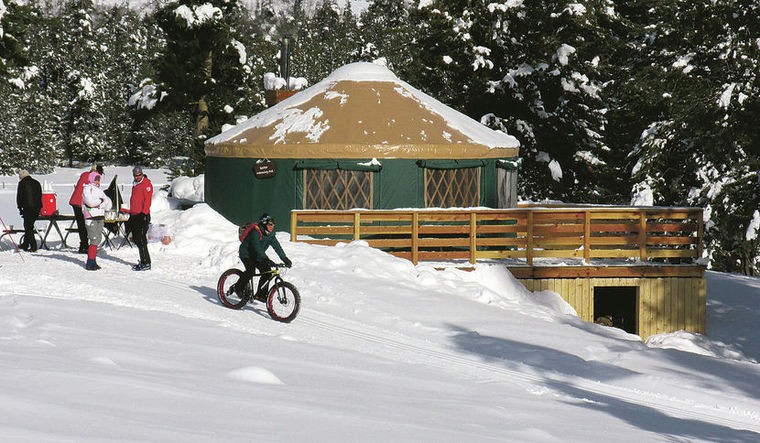BOISE — The future of Harriman State Park could be determined by upcoming votes in the Idaho House.
The issue arose in relation to House Bill 496, a bill that at first glance has nothing to do with Harriman. But the legislation interacts with the original agreement granting the park’s land to the state in a way that endangers its public status.
Rep. Joe Palmer, R-Meridian, sponsored the bill. It changes the way the directors of three state agencies — the Idaho Department of Corrections, the Idaho Transportation Department and the Idaho Department of Parks and Recreation — are hired and fired. Most state department directors are hired and fired by the governor, but in those departments the directors are hired by boards, whose members are in turn appointed by the governor.
While the changes would make the appointment of state department heads more uniform, in the case of Parks and Recreation it could endanger the land that led to the creation of the department in the first place: Harriman State Park, one of the state’s most popular parks, particularly for its world-renowned fly-fishing waters. The reason the park could be endangered is that the deed granting the citizens of Idaho the land on which it sits requires a professional, apolitical department rather than one run by a political appointee.
Harriman State Park sits on land originally owned by E.H. Harriman, a 19th-Century railroad tycoon. It was deeded to the state in 1961 by Roland Harriman during the governorship of Gov. Robert Smylie.
Smylie’s son, former Rep. Steve Smylie, related the story to the committee.
The family was on vacation when Roland Harriman called the governor, saying the family was seriously considering deeding the land, then a playground for the wealthy, to the “people of the state of Idaho.” But both Smylie and Harriman wanted a professional, apolitical park service in the state.
Rick Just, president of Friends of Idaho State Parks, said Smylie had been unsuccessful in establishing such a park service, but Harriman’s land provided a big “carrot” to motivate them to create one. The Idaho Department of Parks and Recreation was founded, and Harriman wrote a deed transferring the land to the state.
That deed also contained a stick to complement the carrot Harriman had offered the Legislature. If Harriman or his descendants determine that the state of Idaho has breached its agreement to run a professional park service “whose personnel shall be on the basis of merit alone,” the ownership of the land would return to the Harriman family. The deed specifically bars the state from appealing that determination in any court anywhere.
Jodi Stiehl, president of Friends of Harriman State Park, a nonprofit group that advocates for and does volunteer work in the park, said the Harriman family is quite large, and different groups within it have different preferences. Many want the park to remain with the state. But some would prefer it be returned to the family so it can be developed or turned back into a private ranch. She said changing the status of the Parks and Recreation director could allow the faction that wants the land to return to the family to seek its return from the state.
“It’s a pretty scary thing to toy with,” Stiehl said in an interview. “… We are really trying to avoid a catastrophe.”
But there’s good reason to hope the bill will be amended to remove the threat to Harriman State Park. Several members of the committee, as well as the bill’s sponsor, said in committee they would support amending the bill to remove the Parks and Recreation director from the bill to ensure that Harriman won’t be taken from the people of the state.
The bill took a rather circuitous route through the legislative process. It was introduced by the Health and Welfare Committee earlier this month. It was then referred to the State Affairs Committee for a hearing. There, representatives debated several issues, but many noted they had received lots of calls and emails from constituents expressing concern about Harriman.
Palmer said he had no desire to endanger the park.
“I’ve been to Harriman Park,” he said. “… I would not want to risk any asset of the state of Idaho.”
But with concerns that the bill might endanger the park, a series of votes to send the bill for amendment or kill it outright deadlocked 6-6. The bill appeared to have failed.
The next day, a motion was made to revive the bill and send it for amendment on the House floor. That vote passed narrowly.
The bill currently sits in “general orders,” a position on the docket which makes it ready to be amended once the House takes up that part of the agenda. Such action could take place any day.
The bill would still need to pass a House floor vote, go through the Senate, and be signed by the governor in order to become law.



